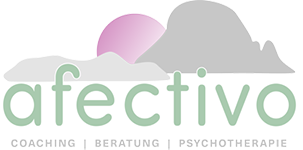Does this sound familiar? Challenges for highly sensitive people
✔ A lot of things get on your "nerves" quickly?
✔ You have often thought that "something is different or wrong" with you?
✔ You like to be alone and withdraw?
✔ Many people in one room stress you out enormously?
✔ Are you stressed by bright lights and loud noises?
✔ Do you often feel misunderstood?
✔ You have a sense when something is "in the air"?
✔ You perceive vibrations and energies that other people don't even notice?
✔ Do you think a lot and get into the "brooding trap"?
✔ You like to be in nature?
✔ You don't like small talk at all?
Interestingly, many highly sensitive people report similar experiences they had to make in the course of their lives. Maybe it's the same for you...
Since our society is mainly focused on performance and consumption, compares and judges, highly sensitive people do not always have it easy in this world. There is a permanent pressure to perform, which is brought to us from the outside. Therefore, one often hears from highly sensitive people that they feel strange and "somehow different". A flower can also only bloom if the environment is right...if the sun shines enough and there is enough water. This image can be transferred very well to highly sensitive people in this world. The self-knowledge of one's own high sensitivity as well as the choice of the environment represent important developmental steps in dealing with the challenges.
Mainly due to the strong perceptive ability and the lower stimulus filter, more information pours in on highly sensitive people than on "normal sensitive people". Due to a "finer network" in the brain, information is not only absorbed more intensively, but also networked with other experiences. Overstimulation and excessive demands occur more quickly.
Stimuli are also experienced more intensively overall. This refers to internal and external stimuli. Under internal stimuli, one can mention the feeling of hunger as an example. Highly sensitive people become restless and nervous more quickly when they are hungry. Stress is the first consequence....
Besides the stress factor, other challenges arise for highly sensitive people:
- The mood of HSM is strongly dependent on external circumstances. This can swing extremely in the positive direction, but also in the negative direction. It is not uncommon for outbursts of rage to occur
- Due to the lower stimulus filter, there is also a high noise - and noise sensitivity. Loud music or noise in general are perceived as very unpleasant
- HSM are altogether much faster overtaxed and exhausted than non - HSM
- The increased susceptibility to stress can also lead to secondary diseases, even to mental illnesses
- The more intense inner emotional life also carries the risk of increased emotional vulnerability
- Boundaries to other people are often experienced as "floating" due to the strong ability to empathize . This can quickly lead to HSMs making others' problems their own. This is where the topic of demarcation plays a decisive role. This also takes a large value in my work
- Because there is a lower stimulus filter for all stimuli, the body reacts more violently to substances such as alcohol, caffeine or drugs
- A strong striving for harmony and fear of rejection cause HSM to have a harder time separating themselves. A strong ability to adapt can also put one at risk of becoming more and more distant from oneself...losing oneself
- Overall, there is an increased predisposition for psychological and psychosomatic illnesses


